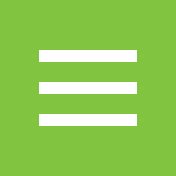The Client/Vendor Relationship: Getting the Best Out of It!
4. What do you want out of the relationship?
In our previous posts we shared client and vendor insights about scoping out a project, defining success, and choosing a vendor. Today, we examine what we each want out of the relationship – being aligned on this is an important factor in a fruitful project and an ongoing relationship.

Trust is important for any good working relationship. As the client, I start to gauge trust during the vendor selection process – I listen carefully to their responses for things such as:
- Examples they provide that demonstrate instructional soundness and alignment with best practices
- Confidence describing their successes and issues they had to address – every project has a problem/challenge requiring clarification
I like to have another internal resource in the meeting when possible, either an SME or another L&D professional, to provide another perspective. And I also listen to my gut.
If I’ve already worked with a vendor, I also consider our past working relationship. Did it include good communication disciplines and consistency delivering quality products? I look for reliability, too—that they did what they said they would do. The biggest benefit of working with a previous vendor is a quicker start up time.
If I am working with a new vendor, I spend a little more time upfront to orient them to our communication process. While I hope for smooth sailing, check-in conversations are an opportunity for feedback and seeing where I could be of help. I want to remove internal roadblocks for the vendor if needed. I request status updates regularly and expect to receive reasonable and knowledgeable responses.
I don’t expect perfection; we are all human. I value dependability and keeping commitments, which build mutual respect. The vendor should be able to expect the same from me.

As the vendor, I want a lot of the same things out of this relationship. Trust and open communications are important because they provide the basis for all our work together. If there are difficult issues that arise, trust and open communications help both the client and I to manage the issues most effectively. I usually ask a lot of questions before and at the beginning of a project to clarify that we are on the same page. A process is also important to me and I am sometimes concerned when my client doesn’t seek a discipline around communications and project management. In those cases, I try to set up a plan they can work with. It’s important for me as a vendor to be willing and able to flex with the client’s needs.
Every client relationship is different. I want my team to be able to positively impact the client and not just do busy work for them. A recent example comes to mind in which we were invited to bid on a large, interesting and complex project for a government agency. In the agency’s question-and-answer period, they often responded to questions vaguely and with very little context. Without knowing the client, their needs, and how they operate, we didn’t feel we could reliably address their needs. There was no opportunity to sit down and have a real conversation with them. And, honestly, it made us question the challenges that could arise during the project, should we be awarded the bid. We decided not to proceed further in the bidding process.
In the end, I believe that building trust is a mutual endeavor and one in which I will take the lead. As David Maister, et. al., write in The Trusted Advisor, “…trust must be earned and deserved. You must do something to give the other people the evidence on which they can base their decision on whether to trust you. You must be willing to give in order to get.”
Keys to success
CLIENT: Start gauging trust during the interview process, spend time at the start of a project agreeing with the vendor on a communications approach, and keep an open line of communication throughout the project.
VENDOR: I mirror Veronica’s summary of the client’s keys to success: Start building and assessing trust during the interview process, take time to agree on a communications approach from the start, and keep an open line of communication throughout the project.
Veronica Clements, formerly a Learning and Development leader, with 25 years’ experience engaging vendors.
Irene Stern Frielich, President of EnVision Performance Solutions, with 20 years as a vendor providing solutions to clients.


